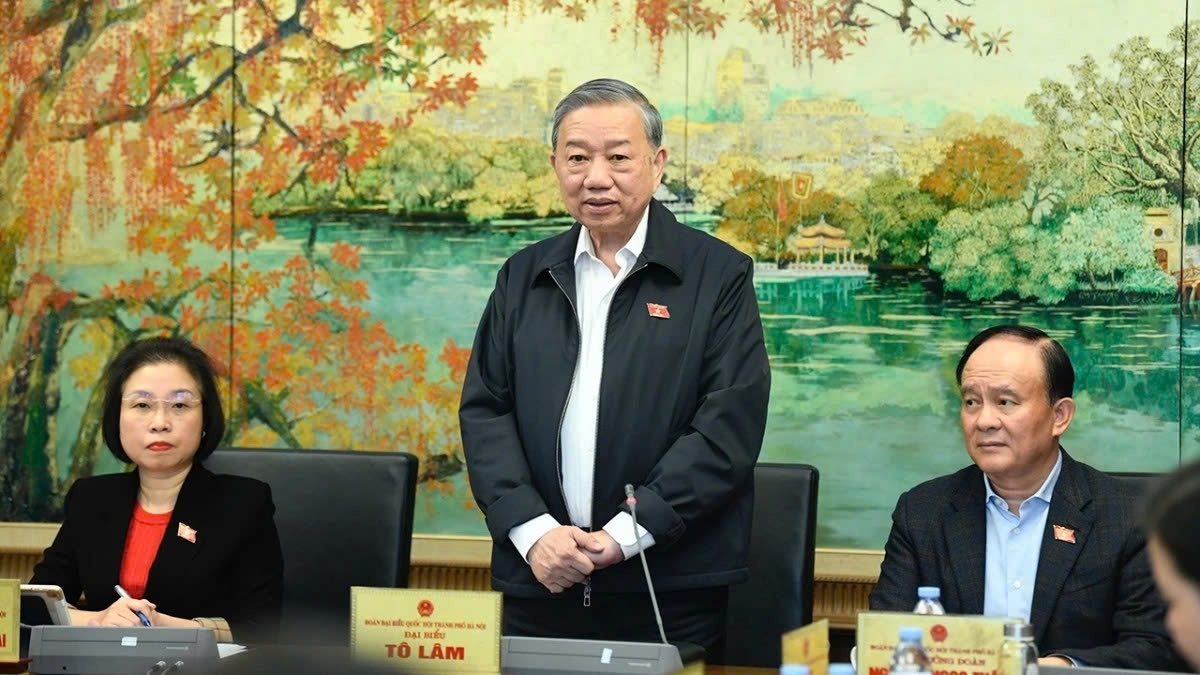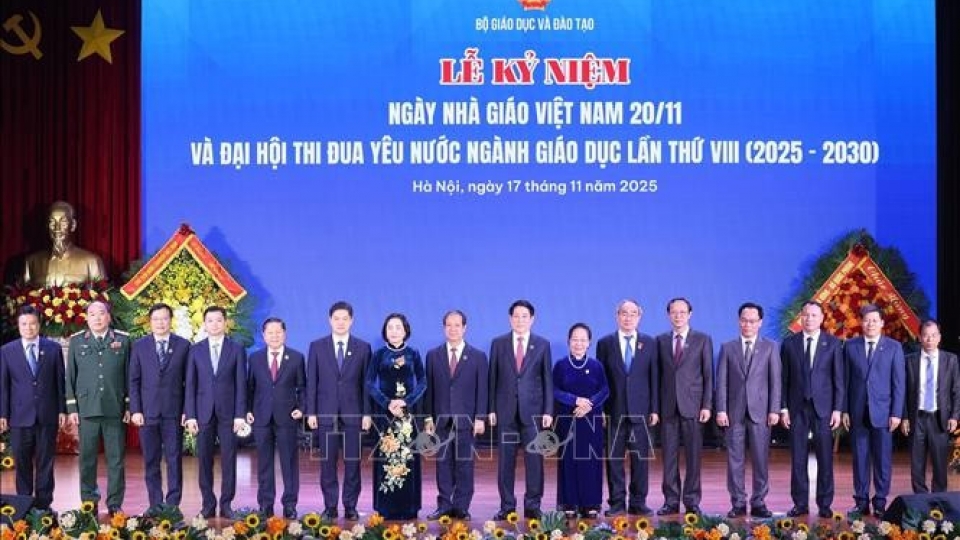Improving quality of life is key to national development, says Party chief
VOV.VN - Improving the quality of life for the people is the key foundation for achieving sustainable national development, said Party General Secretary To Lam during group discussions of the ongoing session of the National Assembly on November 25.

The top leader stressed that three key areas - education, health care, and culture - are crucial for development. These are not only objectives but also driving forces for enhancing human resources, which is a key element in the country’s strategic breakthroughs for the future.
To achieve sustainable development, human resources must be strong both physically and intellectually, and deeply rooted in cultural values, he said.
He particularly stated that all policies and programmes should be designed so that the people are the ultimate beneficiaries, with the goal of ensuring peaceful, joyful, and fulfilling lives for them.
General Secretary Lam reiterated that, in the process of development, economic growth should not only be viewed through macroeconomic indicators but also in terms of its ability to improve citizens’ quality of life.
When people are healthy, educated, and culturally grounded, they will become the driving force behind the development of society and the nation, he emphasised.
The General Secretary also drew attention to the urgent need for reforms in healthcare and education programmes. In the healthcare sector, he called for a long-term vision, with specific goals set for the years 2030 and 2035. One of the main priorities is to shift the focus from treatment to prevention.
Primary health care and disease prevention are the decisive factors in public health, as only when the environment, food, and drinking water are safe can people’s health be protected in the long run, he said.
In education, the General Secretary pointed out the inefficiencies in maintaining small, scattered schools and called for rational solutions to avoid wasting resources.
Where there are students, there must be classrooms and schools, ensuring all children have the opportunity to go to school, without leaving any child behind, he stressed.
Teacher quality is also a pressing issue, particularly with the importance of English as a second language. He underscored the need for policies to develop a qualified teaching workforce that can meet modern educational demands.
The General Secretary also highlighted another pressing issue concerning the approximately 800,000 abandoned children. He proposed policies to encourage families and society to participate in fostering and protecting these children.
The government must adopt measures to support and encourage family adoption models, similar to international practices, he said.
In addition, he called for investments in programmes to be clearly defined and to avoid the duplication of resources. It is crucial to identify clearly who is responsible for implementing each programme to ensure effective execution and achievement of objectives.
He urged the entire society to join hands in implementing development programmes, from education to healthcare, from health protection to social welfare, in order to build a strong nation, with a solid foundation provided by its people.
The programmes for economic growth, education, and healthcare should ultimately aim to enhance citizens' lives, ensuring they benefit from national development, he reminded.





